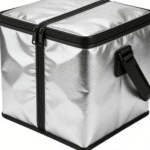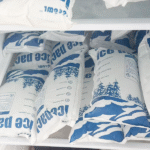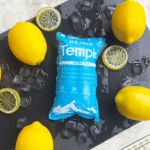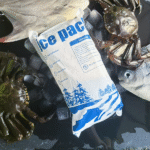Supplier Dry Ice Packs: How to Choose & Scale in 2025
You’re picking the cold “battery” that protects every frozen shipment. The right supplier dry ice packs program improves hold time, reduces spend, and simplifies compliance. This unified guide merges your three drafts and elevates them with 2025 on‑page SEO and cold‑chain best practice.
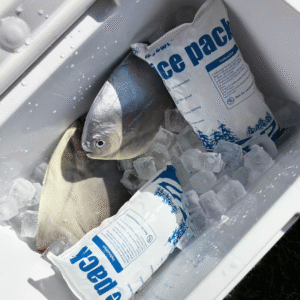
Last updated: October 11, 2025
-
How to shortlist supplier dry ice packs vendors for reliable capacity and weekend coverage
-
Which formats (pellets, slabs, or bagged sheets) match your box and lane duration
-
How to size and validate supplier dry ice packs for 24–96‑hour lanes with data
-
What to include in an SLA to lock price stability, substitutions, and outage credits
-
Which 2025 trends (reclaimed CO₂, smart sensors, e‑DG) change supplier evaluation
What makes a strong supplier dry ice packs partner in 2025?
Short answer: Availability, consistency, and compliance beat list price. You want published cut‑off times, format breadth, food‑grade CO₂ assurance, and proven DG knowledge for air and ground. Expect same‑day pickup or next‑day delivery, clear weekend plans, and simple SOPs that your team can follow.
Why it matters: When lanes peak, capacity wins. Ask suppliers to disclose daily output, pellet/block specs, and lead times. Confirm UN1845/Class 9 labeling support for air and venting guidance for road. A partner who shares COA/batch data and shrink allowances prevents costly surprises. Use a 0–2 scoring checklist and keep vendors scoring ≥16/20.
supplier dry ice packs
How should you size supplier dry ice packs by lane risk?
Deep dive: Start with a lane forecast: pounds per box × boxes per lane × dispatch frequency. Add a seasonal buffer. A practical first pass is:
Then refine with validation data and logger traces. Typical starting points per 24h: EPS 5–6 lb; rigid plastic + liner 6–8 lb; corrugate + liner 8–10 lb.
supplier dry ice packs
| Lane Type (24h blocks) | Ambient Risk | First‑Pass Mass (per 10 L) | What it means for you |
|---|---|---|---|
| Urban 24–36 h | 15–25 °C | 2.5–3.0 kg/24h | Dense routes + good foam; watch last‑mile dwell |
| Regional 48–72 h | 20–30 °C | 3.0–4.0 kg/24h | Add “cold lid” block and bottom spacer |
| Hot lane 72–96 h | 30–38 °C | 3.5–5.0 kg/24h | Consider pellet + block combo; thicker walls |
Practical tips you can apply today
-
For ≤24 h lanes: Use top‑only placement with a bottom spacer to slow heat creep.
-
For 24–72 h lanes: Split mass 60/40 (top/bottom) to flatten gradients.
-
For >72 h or fragile goods: Add separators; avoid direct pellet contact to prevent freeze‑shock.
supplier dry ice packs
Real case: A meal‑kit brand cut excursions by 32% and ice spend by 14% by switching to top+bottom geometry with the same total mass and pre‑chilling shippers.
supplier dry ice packs
Pellets, slabs, or sheets: which supplier dry ice packs format fits your box?
Quick take: Match surface area to risk. Pellets accelerate pull‑down and even distribution; slabs/blocks slow sublimation for long lanes; pre‑bagged sheets speed kitting and repeatability.
Details you can use: 3–9 mm pellets fill voids and cool fast; 5–10 lb blocks hold longer with fewer cold spots; pre‑bagged bricks or sheets are great for multi‑site SOPs and lower training time—often at a premium that volume tiers can offset.
supplier dry ice packs
Prevent damage and mess while you gain uniformity
| Format | Best Use | Pros | Watch‑outs | Field Tip |
|---|---|---|---|---|
| 3 mm pellets | Interstitial cooling | Even distribution | Faster surface loss | Pre‑bag for cleaner unpack |
| 9 mm pellets | Mixed payloads | Balance of hold & spread | Needs vent paths | Avoid over‑compression |
| 5–10 lb blocks | Long lanes | Slow sublimation | Cold pooling | Add bottom + top blocks |
| Pre‑bagged sheets | High‑throughput SOPs | Repeatability | $/lb premium | Lock pricing via tiers |
Top‑only, top+bottom, surround, and interstitial layouts you can standardize across sites.
supplier dry ice packs
How do you validate supplier dry ice packs performance with data?
Essential steps: Format → lane → operational validation.
-
Compare pellets vs. slabs vs. hybrid; 2) simulate worst‑case ambients on longest lanes with logger probes near product and corners; 3) train operators with photo SOPs and measure pack time and label accuracy. Set acceptance criteria (e.g., core ≤ −20 °C; internal air −60 °C to −25 °C; 0 mislabels in 100 boxes).
supplier dry ice packs
A copy‑paste mini tool for your SOP (decision logic)
supplier dry ice packs
How should you compare price and write a no‑surprises SLA for supplier dry ice packs?
Price correctly: Look beyond $/lb. Total cost includes delivery fees, shrink before use, packaging premiums, and tote/pallet returns. Negotiate outage credits and weekend surcharges above volume triggers.
supplier dry ice packs
| Pricing Component | What to Ask | Why it matters to you |
|---|---|---|
| Base $/lb | Tier breaks at 20k/40k/60k lbs | Scale savings you can plan |
| Delivery | Zone, fuel, weekend fees | Hidden driver you can control |
| Packaging | Pre‑bag/sheet premiums | Labor trade‑off vs. waste |
| Shrink | Loss from load to pack station | Real, measurable waste |
| Returns/Reuse | Tote/pallet policy | Circular cost offset |
SLA essentials: allocation & cut‑offs; format specs with tolerances; food‑grade and hygiene standards; on‑time % with shrink allowance; substitution rules (pellet↔block); reclaimed CO₂ targets; audit rights with annual re‑validation. Photo‑rich SOPs attached to the SLA prevent disputes.
supplier dry ice packs
What compliance should supplier dry ice packs meet in 2025?
Make it simple for your team:
-
Air: IATA PI 954—vented packaging, UN1845, proper shipping name, and net kg on the same panel; AWB notation.
-
Ground (US): 49 CFR 173.217—marking/venting for dry ice used as a refrigerant.
-
Workplace: OSHA/NIOSH CO₂ exposure limits (5,000 ppm TWA; 30,000 ppm STEL).
-
Food‑grade: FDA 21 CFR 184.1240 (US) and EU E290; request COAs and HACCP/ISO 22000.
These are baseline, not optional.
2025 trends in supplier dry ice packs—what changes your sourcing?
Trend snapshot: Reclaimed CO₂ supply is rising, offering the same thermal performance with a lower footprint. Smart logger bundles at delivery expose corner heat leaks and confirm hold time. Urban micro‑depots extend cut‑off times for pellets. e‑DG workflows speed air acceptance. Vent‑membrane lids help equalize CO₂ and limit warm pockets. Ask vendors for reclaimed CO₂ share, logger options, and e‑DG familiarity.
supplier dry ice packs
Latest developments at a glance
-
Reclaimed CO₂: Lower emissions without changing your pack‑out physics
-
Edge‑aware sensors: Fewer unseen hot spots; faster corrective action
-
Self‑service micro‑depots: Weekend and late cut‑offs with local pickups
Market insight: Industry estimates in 2025 continue to project mid‑single to high‑single‑digit CAGR for dry ice and packaging systems, led by pharma, frozen e‑commerce, and improved last‑mile reliability.
FAQs
How much supplier dry ice packs mass should I plan per day?
Start with 5–10 lb per 24 h depending on shipper and ambient, then validate with loggers. Keep a 15–20% seasonal buffer.
supplier dry ice packs
Are pre‑bagged pellets worth the premium?
Yes when labor is tight, contamination risk is high, or you operate many sites. Time saved and fewer errors often offset the $/lb premium.
supplier dry ice packs
Can I use dry ice for 2–8 °C goods?
No. It’s too cold (−78.5 °C). Use 2–8 °C PCM or gel packs to avoid freeze damage.
supplier dry ice packs
What proves a supplier meets food‑grade requirements?
Lot‑level COAs tied to FDA 21 CFR 184.1240/EU E290 plus ISO 22000/HACCP documentation and clear segregation SOPs.
How often should I re‑validate lanes?
Annually, and whenever you change shipper walls, formats, or lane profiles. Re‑test in peak season.
supplier dry ice packs
Summary & recommendations
In short: Pick supplier dry ice packs partners on capacity, format range, and compliance—not just price. Forecast by lane and negotiate tiers and weekend coverage. Validate formats and placements using worst‑case ambients and loggers. Lock SLAs covering allocation, quality, delivery, substitutions, and sustainability targets.
supplier dry ice packs
Next steps:
-
Build a 12‑week, lane‑level forecast (+15% buffer).
-
Shortlist three suppliers and score them with a 10‑point checklist.
-
Pilot pellets vs. slabs on your longest lane.
-
Finalize SLA + photo SOPs and set standing orders with hybrid top‑ups.
-
Review quarterly; re‑validate before summer peaks.
About Tempk
We engineer frozen, 2–8 °C, and CRT pack‑outs that pass acceptance on the first attempt. Our supplier dry ice packs programs combine validated insulation, right‑sized formats, and labeling that meets airline and carrier job‑aids. We back this with SLA playbooks, seasonal backup plans, and performance dashboards you can share with leadership.
supplier dry ice packs
CTA: Want a two‑supplier sourcing map for your ZIP code plus a pilot plan to cut dry‑ice mass by 10–20% without risking temperature? Talk to a Tempk specialist.


















